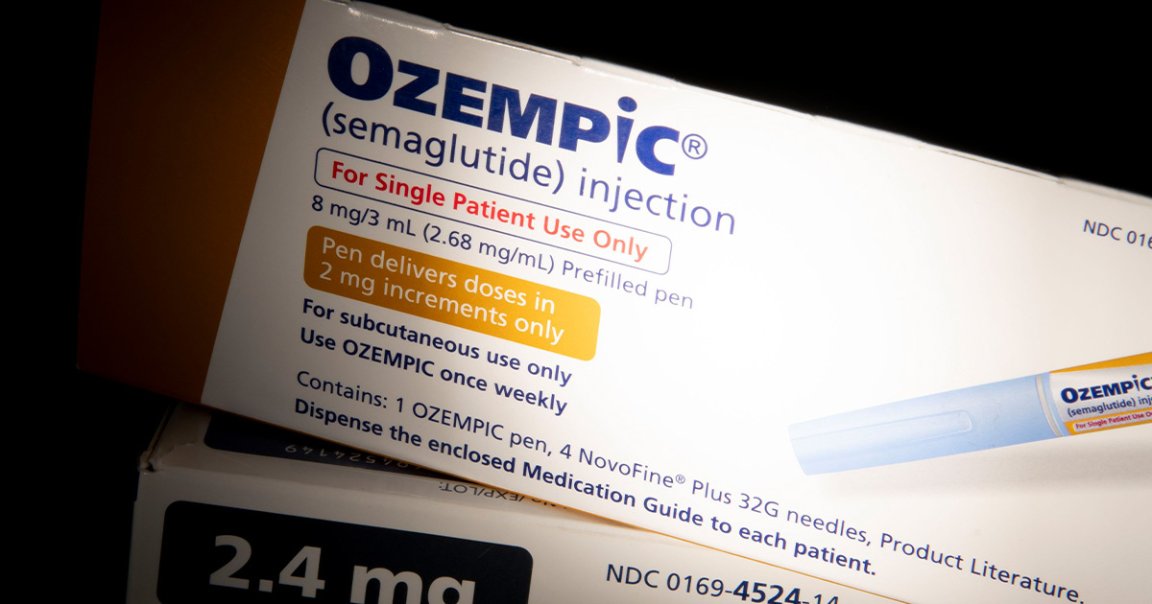
With so many kids already taking weight loss injectables like Ozempic, a new finding from the company behind the blockbuster weight loss drugs is looking to expand its pediatric market.
In a new study, Novo Nordisk, the pharmaceutical firm behind Ozempic and Wegovy, boasts that one of its drugs can help lower the body mass index (BMI) of children between the ages of 6 and 12.
Published in the New England Journal of Medicine, this latest pharma-sponsored study focuses on liraglutide, the active ingredient in the drug sold as Saxenda. Like Ozempic, Wegovy, Mounjaro, and Zepbound, liraglutide belongs to the class of drugs known as GLP-1s, which seem to mimic the stomach’s feeling of fullness.
Along with attending lifestyle coaching sessions with their parents, the 82 children in the study whose BMIs met the threshold for obesity were injected daily with either the active drug or the placebo for about 13 months.
Conducted by an international group of medical researchers, this study concluded that kids who got the active liraglutide had an average BMI reduction of 5.8 percent, compared to 1.6 percent of children who got the placebo.
While childhood obesity is indeed a risk factor for health disorders both in youth and in adulthood, some medical experts are concerned that putting children that young on drugs as powerful and relatively new as GLP-1s could cause more harm than good.
“We do not know the long-term effectiveness and safety of these medicines in children,” explained Roy Kim, a pediatric endocrinologist at the Cleveland Clinic, in an interview with NBC. “While the medicine was well tolerated, there are concerns about this category of medicines and possible pancreas problems, thyroid cancer risk and bone health over the lifetime.”
Because these drugs are known to reduce or suppress appetite, Duke University pediatrics professor Sarah Armstrong suggests that giving them to kids could also put them at developmental risk.
“What happens to kids if you put them on medication that makes them less hungry while they’re still growing?” mused Armstrong, who also helped create the American Academy of Pediatrics guidelines. “Are they going to have delayed puberty? Are they going to have delayed growth? Will it somehow affect their bone density? Will it create disordered eating patterns that are going to cause other problems later in life?”
Though both doctors suggested that the results of this small trial could be beneficial when considering treatment options for children with severe obesity, especially when trying to head off comorbidities, it’s still telling that even experts who are not wholesale against GLP-1s or their use on children have such concerns.
To date, no GLP-1 drug has been approved by the Food and Drug Administration for children under the age of 12. If the agency starts considering it, the public will learn much more about the safety and efficacy of these medications for children — and hopefully, those studies won’t also have been funded by the companies who are making bank from their sales.
More on weight loss injections: Eli Lilly Offering Way Cheaper Zepbound, If You’re Willing to Buy Your Own Syringes